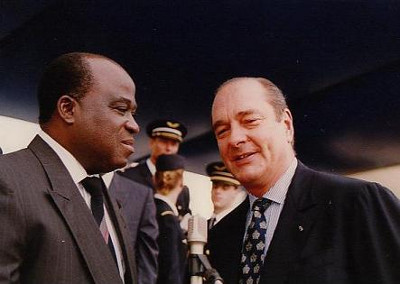

Decolonisation
Post-Decolonisation


Colonialism is often associated with the European Empires that expanded in the last three centuries. However, it is not a modern phenomenon as many ancient civilizations relied on colonies to expand their influence on the world. Among them, one can cite the Greeks and Romans, the Ottomans and the Moors. The first massive colonial expansion happened in the Americas with Spain and Portugal mastering the new navigation techniques. Those colonizing empires were then able to extend their political sovereignty on foreign lands by sending large numbers of colons. [colonialism] . The following centuries then saw the European empires expand on all continents, this culmination ending with the national liberation movements of the 1960s.
We will try to understand if by gaining their sovereignty, the former colonies truly achieved the freedom they expected. And more precisely, if the way the decolonization was handled is having influences on the current stability of the former colony.
To better understand the variations in the current state of former colonies, we first need to look at who were their colonizers. From there, we can observe the variations in the decolonization process. We finally look at the conflicts post-decolonization to better assess the political stability of the former colonies. The first disclaimer for our analysis is that we won’t be able to answer the question of freedom and stability without making some definition choices. The notion of freedom is biased depending on the individual, therefore we will work from a basic assumption. As most human beings aims at a better life with more security and prosperity, we will estimate the will of freedom to be achieved in the decolonization process when the former colonies reaches a state of peace.
For our analysis, we mix two different definitions: colonialism and imperialism. Colonialism comes from the latin ‘colonus’, a farmer. While imperialism comes from the latin ‘imperium’ that refers to command. The main difference comes from the aspect of sending colons to a new land for colonialism, and those are expected to remain their allegiance to their homeland. Whereas imperialism is focusing on the way how a country is exercising is power and influence over another one. The close relationship between those cases is not the topic of our research, as we will study the states that separated from their country of influence.




The UCDP dataset focuses on conflicts in the period after the Second World War, It comes from a joint project between the Uppsala Conflict Data Program (UCDP) and the Peace Research Institute in Oslo (PRIO). It contains information on armed conflicts where at least one party is the government of a state in the time period 1946-2016. UCDP defines conflict as:
A contested
incompatibility that concerns government and/or territory
where the use of armed force between two parties, of which at
least one is the government of a state, results in at least 25
battle-related deaths in a calendar year.
This Dataset regroups all the conflicts informations, like the countries or political parties involved, or the date of the conflict. But in order to interpret these information and answer the research questions, more material is needed. This additional material is extracted from Wikidata. Wikidata is a central storage for the structured data of Wikipedia, Wikisource and others. Therefore, it links the different European powers to their colonies.
View More